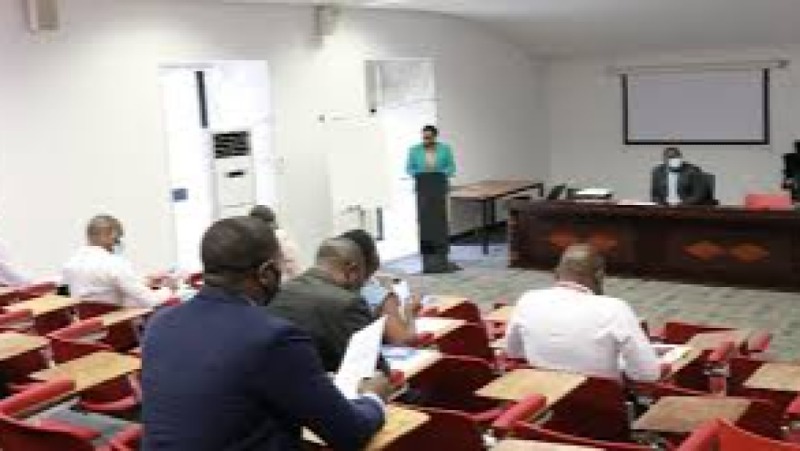The Role of Supreme Audit Institutions (SAIs) in Combating Corruption Training Course
The Role of Supreme Audit Institutions (SAIs) in Combating Corruption Training Course equips participants with advanced knowledge, innovative anti-corruption tools, and practical frameworks to enhance the effectiveness of SAIs in safeguarding public trust.

Course Overview
The Role of Supreme Audit Institutions (SAIs) in Combating Corruption Training Course
Introduction
Supreme Audit Institutions (SAIs) play a critical role in strengthening governance, accountability, and transparency in public financial management systems. By upholding international auditing standards, promoting integrity, and ensuring oversight of government operations, SAIs act as powerful watchdogs against fraud, misuse of public resources, and corruption. The Role of Supreme Audit Institutions (SAIs) in Combating Corruption Training Course equips participants with advanced knowledge, innovative anti-corruption tools, and practical frameworks to enhance the effectiveness of SAIs in safeguarding public trust.
Through an interactive and hands-on approach, this course explores international best practices, case studies, and modern methodologies for anti-corruption audits, compliance reviews, and risk assessments. Participants will develop essential skills in forensic auditing, stakeholder engagement, digital transformation, and reporting strategies that strengthen accountability mechanisms. By the end of this program, professionals will be empowered to leverage SAIs as key drivers of anti-corruption reforms and sustainable governance.
Course Objectives
By the end of the course, participants will be able to:
- Strengthen anti-corruption audit frameworks in line with global standards.
- Apply risk-based auditing techniques for detecting fraud and corruption.
- Enhance transparency and accountability in public financial management.
- Integrate digital audit tools and data analytics to combat corruption.
- Foster institutional integrity systems for effective governance.
- Improve compliance monitoring mechanisms across government entities.
- Strengthen oversight of procurement and contract management.
- Build stakeholder collaboration for anti-corruption enforcement.
- Apply forensic auditing and investigative skills in real-world cases.
- Develop strategic communication and reporting for audit findings.
- Advance capacity building and leadership within SAIs.
- Benchmark international best practices in anti-corruption auditing.
- Promote sustainable reforms in governance and public administration.
Target Audiences
- Supreme Audit Institution officials and auditors
- Public financial management professionals
- Anti-corruption agencies and compliance officers
- Government procurement and contract managers
- Risk management and internal audit officers
- Policy makers and governance experts
- Civil society and accountability organizations
- International development partners and donor agencies
Course Duration: 5 days
Course Modules
Module 1: Foundations of SAIs in Combating Corruption
- Understanding mandates and constitutional roles of SAIs
- Global frameworks for anti-corruption accountability
- Institutional independence and oversight functions
- Key challenges facing SAIs in corruption control
- Building a culture of transparency and ethics
- Case Study: The role of SAI India in promoting transparency
Module 2: Risk-Based Auditing for Corruption Prevention
- Identifying corruption-prone sectors
- Risk assessment methodologies in auditing
- Developing effective audit planning frameworks
- Use of risk indicators in public sector audits
- Linking audit outcomes to governance reforms
- Case Study: SAI South Africa’s risk-based auditing approach
Module 3: Forensic Auditing and Investigative Techniques
- Introduction to forensic auditing in the public sector
- Detecting fraud and financial irregularities
- Tools for evidence collection and preservation
- Collaboration with investigative and law enforcement agencies
- Reporting findings for judicial and administrative action
- Case Study: Forensic audits by Brazil’s Federal Court of Accounts
Module 4: Digital Transformation and Data Analytics in Auditing
- Role of technology in modern auditing
- Leveraging big data and analytics for fraud detection
- Automation tools for continuous auditing
- Cybersecurity considerations in audit processes
- Integrating digital platforms with SAI operations
- Case Study: Estonia’s e-governance and audit innovations
Module 5: Oversight of Public Procurement and Contract Management
- Key corruption risks in procurement
- International procurement integrity frameworks
- Audit strategies for public contracts and tenders
- Monitoring supplier compliance and performance
- Enhancing procurement transparency
- Case Study: Procurement oversight by Kenya’s Office of the Auditor-General
Module 6: Compliance Monitoring and Accountability Mechanisms
- Strengthening compliance monitoring frameworks
- Using compliance audits to reduce corruption risks
- Linking compliance monitoring to policy reforms
- Role of civil society in enhancing accountability
- Effective sanctions and corrective actions
- Case Study: Compliance monitoring reforms by SAI Philippines
Module 7: Strategic Communication and Reporting of Audit Findings
- Writing impactful audit reports
- Communicating audit findings to stakeholders
- Media engagement and public awareness strategies
- Ensuring timely implementation of audit recommendations
- Building trust through transparent reporting
- Case Study: Reporting reforms by the UK National Audit Office
Module 8: International Best Practices and Collaboration
- Global standards and frameworks for SAIs (INTOSAI, AFROSAI, etc.)
- Benchmarking against high-performing SAIs
- Cross-border collaboration in anti-corruption efforts
- Donor engagement and development partnerships
- Lessons learned from international experiences
- Case Study: OECD collaboration on anti-corruption initiatives
Training Methodology
- Interactive lectures led by expert facilitators
- Case study analysis of global SAI practices
- Group discussions and simulations for problem-solving
- Hands-on exercises using audit tools and frameworks
- Peer learning and experience sharing among participants
- Practical workshops for applying anti-corruption strategies
Register as a group from 3 participants for a Discount
Send us an email: [email protected] or call +254724527104
Certification
Upon successful completion of this training, participants will be issued with a globally- recognized certificate.
Tailor-Made Course
We also offer tailor-made courses based on your needs.
Key Notes
a. The participant must be conversant with English.
b. Upon completion of training the participant will be issued with an Authorized Training Certificate
c. Course duration is flexible and the contents can be modified to fit any number of days.
d. The course fee includes facilitation training materials, 2 coffee breaks, buffet lunch and A Certificate upon successful completion of Training.
e. One-year post-training support Consultation and Coaching provided after the course.
f. Payment should be done at least a week before commence of the training, to DATASTAT CONSULTANCY LTD account, as indicated in the invoice so as to enable us prepare better for you.